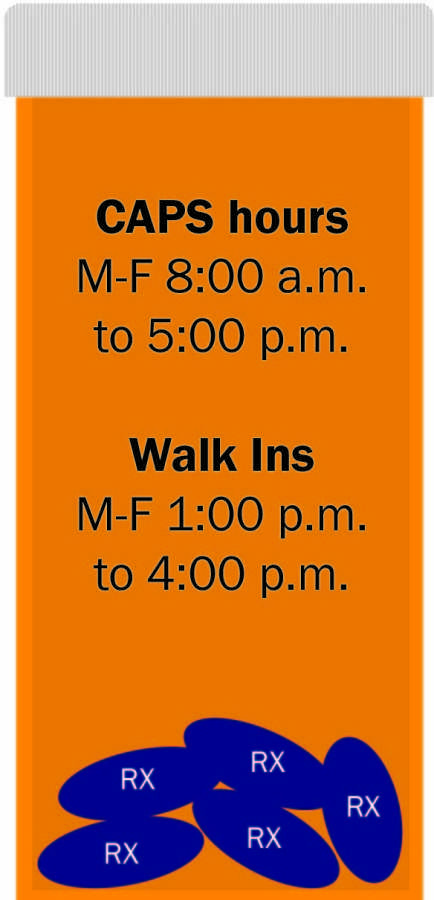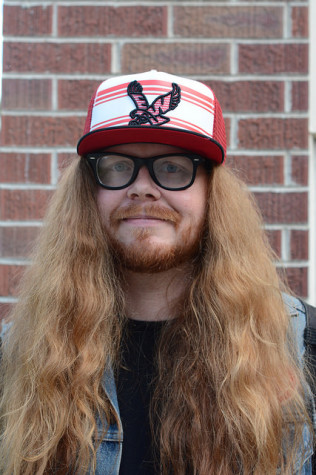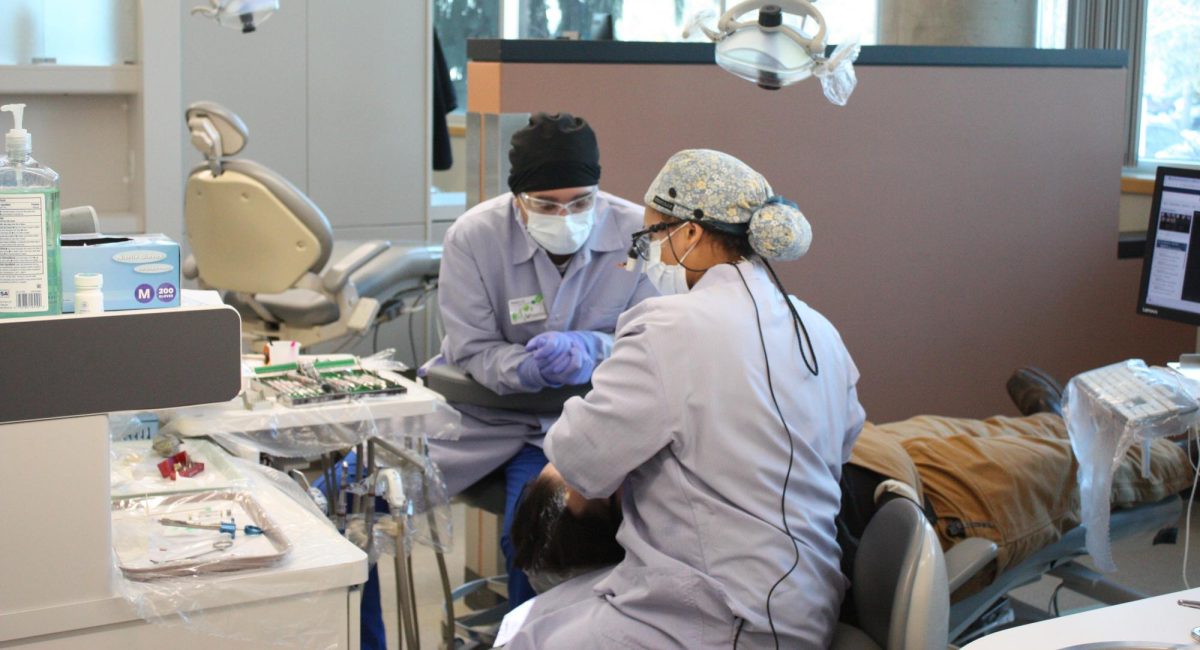University mental health services available to students on campus
October 5, 2014
It is no secret that university life comes with stress.
For many students, it is the initial stress of being away from family that comes with moving to campus. For others, it is the competition for acceptance into highly competitive programs like nursing and engineering.
For some students though, the stress and anxiety caused by the rigors of university life can develop into a serious problem: mental health issues.
This is where Counseling and Psychological Services (CAPS), can be a valuable resource for students.
According to Dr. Robert Henry, D.O., consulting psychiatrist for CAPS, the point of the service is for students to maintain adequate mental health while they are at EWU so they can achieve the goals that they set for their education, their careers and their lives.
“Ultimately, we want to have any student come to Eastern Washington University to be successful,” Henry said. “That’s what our mission is.”
Henry is starting his eighth year at Eastern this fall and said he personally sees anywhere from 20 to 30 students per year with problems ranging from anxiety and depression, to mood disorders, to full-blown schizophrenia psychosis.
Though it is often thought of as a free service, CAPS is actually part of Eastern’s comprehensive health and wellness program.
Each student enrolled in six or more credits is charged a mandatory fee of $87.94 per quarter, the most expensive of EWU’s mandatory fees, which are outlined on Eastern’s website, and also include STA transportation, student technology and use of the recreation center.
Recently, due to an increase in demand for the services CAPS provides, a limit has been placed on the number of visits a student can make in a given time period. But, Henry said if there is a special need from a student, there are ways to continue with counseling and treatment beyond that limit.
“Access is the most important thing,” Henry said. “There should be no barriers for them to come in and get the help that they need to help maintain their status as a student here at the university.”
Henry said this type of access is not available across the board at universities in the U.S., or even in the Spokane and Cheney area.
He said he had started a psychiatry clinic at Gonzaga University in 2000, when GU had a psychiatry residency in Spokane but said that is no longer active, and he does not know what Gonzaga does now.
Whitworth offers six counseling sessions per term for full-time students, but Henry said he does not believe the sessions are with a psychiatrist.
Ease of access is why EWU senior John Kephart said he started using CAPS services in fall quarter 2013, when he noticed behavioral changes in himself that he did not like. After an outburst in an American Literature class, he said he felt depressed and upset with the way he had acted and decided it was time to seek help.
“I was very upset about it,” Kephart said. “I voiced my opinion in a very aggressive and angry manner … and it didn’t benefit anybody. I had spoken to one of my professors, who recommended that I go see the people at CAPS.”
Kephart said the service being included in the cost of his education benefited him greatly at a time when he was uninsured and could not have otherwise afforded it.
Holly Jeanneret, also a senior at EWU, said she was in the same situation when she started using CAPS.
She describes herself as a “serial dropout:” she dropped out of high school, art school, Evergreen State College and even dropped out of Eastern twice. She said she initially sought help from CAPS as a freshman when her father died but started going regularly as a way to simply stay in school.
Having suffered from a range of mental health issues since she was 17, Jeanneret said CAPS was the first service in her life that has truly helped her to achieve her goals.
“It was like, ‘I don’t want to drop out this time, so I’m going to go to counseling.’ And it worked.”
Jeanneret said a big part of the reason she dropped out so many times is that she has severe anxiety disorder. Just the thought of going to school made her physically ill.
She said she had bad experiences with Group Health counselors and at Spokane Mental Health, where she was prescribed medications that did not help. The medicine caused side effects ranging from weight gain, to hallucinations, to sleep paralysis.
Henry said that he tends discourage the use of medication, unless absolutely necessary. Often students come to him already on medications he finds inappropriate for their condition, and it is then his goal to either get them off medication completely or find something that works for them.
He said that the benefit of medication is that it can be looked at as a tool, a bridge to a better place, but that they are not curative.
If somebody has anxiety or depression, medication can help stabilize that condition for long enough for the patient to get into a meaningful therapy process that can actually be curative, or at least give them skills to allow them to cope with whatever disorder they might have.
In Jeanneret’s experience, she said the side effects from being on the wrong medications were just too much for her.
She began reading about user experiences for different drugs online, until she found a medication that seemed perfect for her. When she brought her findings to CAPS, the providers there were able to work with her needs, and she got on a medication that worked.
“It’s been a long series of failures. [I] get more control in CAPS, I think, than I have had anywhere else,” she said. “They actually respect you. I’m less afraid. My anxiety is a little bit less. I still have problems, but I’m not in danger of completely losing [it].”
After his experience at CAPS, Kephart said he was able to get insurance through the Affordable Care Act and found a medication that was right for his problems with depression. He said that the counseling he got from CAPS gave him the push he needed seek additional help.
One of the main goals of CAPS, according to Henry, is to help erase the stigma associated with mental health. He said a lot of research has been put into this and that at one point in their lives, almost half the population of America has suffered from some sort of mental health issue.
“I understand people having fear of other students seeing them in here, and feeling like they need help,” Henry said. “But actually, in the long run, it is a position of strength for someone to seek assistance if they need help with something, not a position of weakness.”
From being a “serial dropout,” to graduating this year, Jeanneret said she thinks working with CAPS has helped her achieve her goals.
“I know part of it is that I have a support system on campus. It helps. It really helps.”









